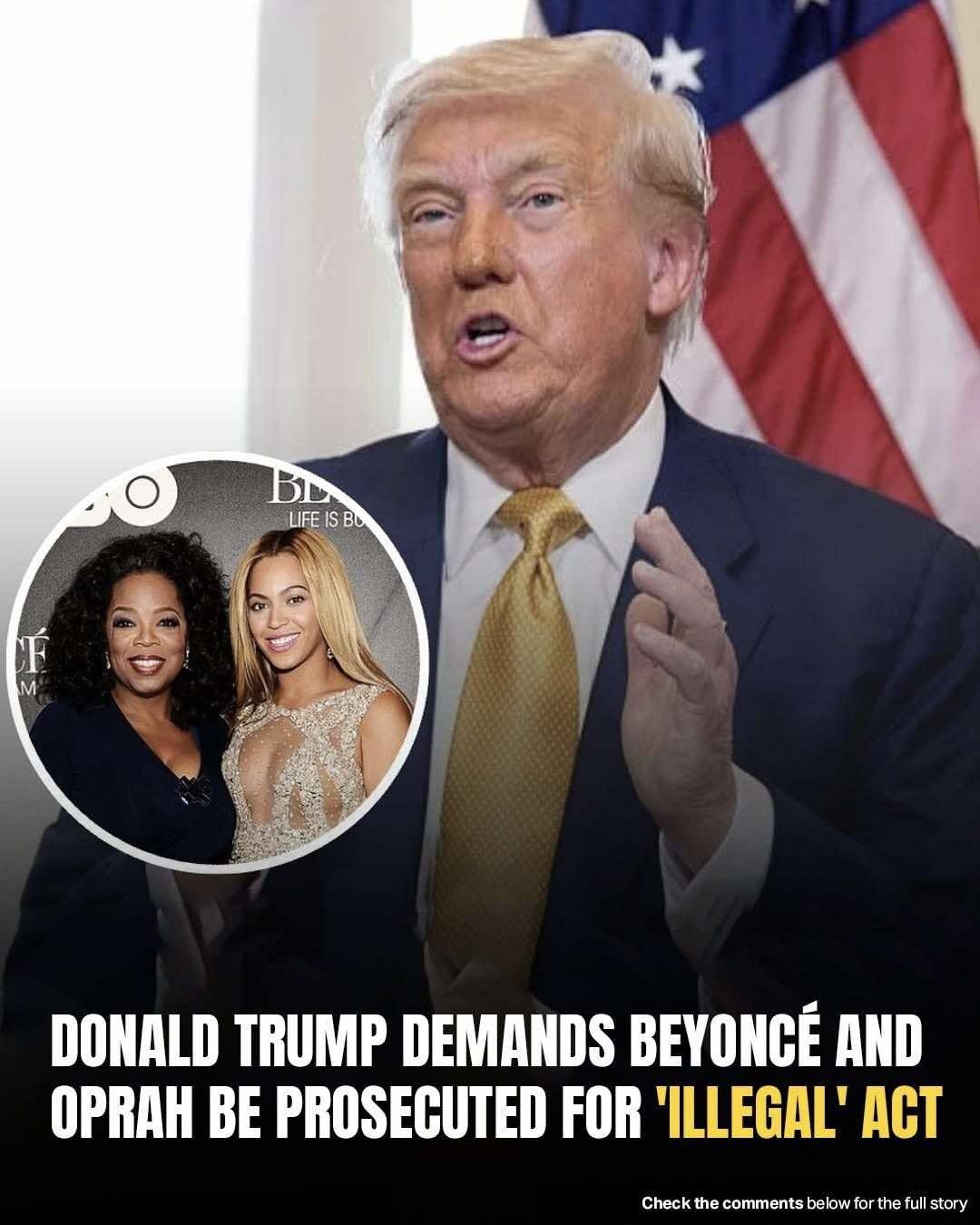President Donald Trump reignited controversy in late July 2025 with a series of explosive allegations on Truth Social accusing Beyoncé, Oprah Winfrey, Rev. Al Sharpton, and former Vice President Kamala Harris of participating in “illegal” campaign payments tied to the 2024 election. Trump claimed Harris’s campaign funneled millions to high-profile figures—asserting, for example, that Beyoncé was paid $11 million to briefly appear at a rally, endorse Harris, and leave without performing, and that Oprah received $3 million while Sharpton got $600,000 for their public support. He demanded criminal prosecutions, framing the alleged transactions as outright violations of campaign finance law and decried them as “totally illegal.” (The Daily Beast, ABC7 Los Angeles, The Economic Times)
The claims immediately drew scrutiny. News outlets and fact-checkers noted that Trump provided no corroborating evidence for the most dramatic figures and that his narrative conflicted with publicly available campaign finance disclosures. The Harris campaign, along with representatives for the celebrities, pushed back, characterizing the payments in question not as endorsement fees but as legitimate event-related expenses. Beyoncé, speaking at the October 2024 rally that became a focal point of the allegation, framed her presence not as a celebrity cameo but as that of “a mother who genuinely cares about our future.” (WXLV, AOL)
Official records paint a markedly different picture than the one painted by Trump. Federal Election Commission and related filings show that Beyoncé’s production company, Parkwood Entertainment, received roughly $165,000—far short of the $11 million figure Trump cited. Oprah’s Harpo Productions was paid about $1 million, and Sharpton’s National Action Network received approximately $500,000; those sums were reported as costs associated with organizing and producing campaign events, including a livestreamed Michigan appearance, not straightforward endorsements. Harris’s campaign and the involved parties have consistently maintained that the payments covered logistical and production services, and that no illegal endorsement scheme took place. (New York Post, ABC7 San Francisco, Yahoo)
The episode unfolded amid broader political tension, and critics contextualized Trump’s accusations as part of a pattern of high-profile distractions. Some observers, including commentators cited in coverage, suggested the timing and tone of the attacks—especially the heightened focus on celebrity involvement—were intended to shift public attention from other controversies surrounding Trump, including renewed scrutiny of his past associations and ongoing investigations. (The Daily Beast)
Despite the public spectacle, no official agency had, as of late July 2025, brought charges against Harris, Beyoncé, Oprah Winfrey, or Al Sharpton in connection with these allegations. The White House had not announced any formal investigation or legal action to substantiate the claims. The contrast between the president’s dramatic accusations and the documented disclosures has left the matter in a contested space: politically charged, widely discussed, but unproven in any legal forum. (ABC7 Los Angeles, Yahoo)
